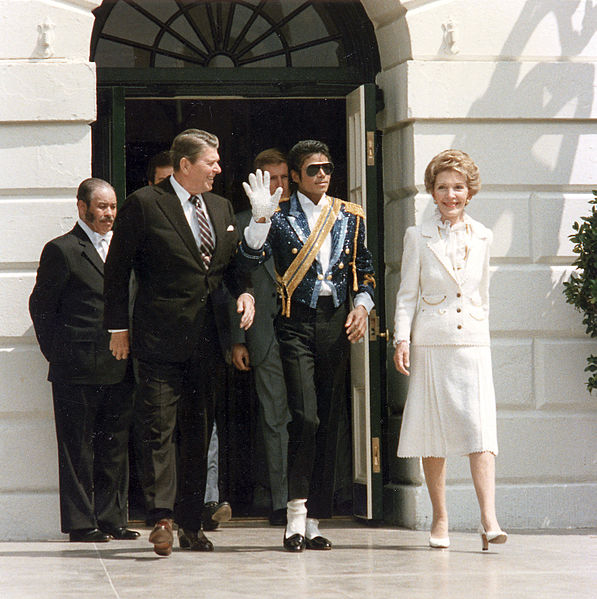It is the job of the market to turn the base material of our emotions into gold.
Andre Codrescu
In Ireland, if you hear ‘Section 8’, you might think THEFT, as here we have a statute for that, oh and FRAUD. No need to applaud. Meanwhile in America, they might mean housing the homeless or be talking about WWII-era homosexuals, bisexuals, crossdressers and transgender people deemed mentally unfit to serve in the military. Their undesirable behaviour being quaintly labelled ‘dishonorable discharge.’
Social engineering aside, it seems even at the federal level, there’s a fine line between love and hate. But be aware there exists a vital Section 8 under Article One of the venerable U.S. Constitution, called ‘The Copyright Clause’. It reads: ‘To promote the progress of science and useful arts, by securing for limited times to authors and inventors the exclusive rights to their respective writings and discoveries.’
Also known as the ‘Intellectual Property Clause’, these precious words provide that each patent granted remains inviolate for a solid seventeen years. And I speak from personal experience: in the sixties, once expired, patents could not be renewed.
Since then, Congress has consistently cobbled together rules around a patent to galvanize its value, with consequent financial benefits for the holder. These and other actions by Congress systemically thwart the laws that governed a creative capitalism under which America once thrived.
One result has been to tilt the playing field in favor of corrupt oligarchs and multinational corporations, who can afford the capital-intensive funding of new ventures on the front end.
While the Constitution’s specified process for amendment was ignored by Congress, a slew of new laws were spawned to maintain the 99% at 1960s income levels. This legislation bedevils a middle class who slaves for longer and less, but still pays the sky-rocketing price of ingenuity and innovation.
To become a songwriter, performing artist, or movie producer today requires alliances or confrontations with giant media or technology corporations, and involves fighting prohibitively expensive legal offensives to retain patent rights in perpetuity.
Michael Jackson’s heirs have inherited the highest-earning estate in history according to Forbes magazine, which collects more royalties than Jackson himself ever did. Michael’s life ended in a homicidal dose of sedatives administered by his personal physician. After being convicted of involuntary manslaughter, the doctor served four years, before being released based on a combination of prison overcrowding and his own good behaviour.
Samuel Clemens, who wrote under the nom de plume Mark Twain, was a staunch advocate for authors against publishers. He identified the latter as pirates of copyright and speculated that last minute augmentations to his works could prevent them ever entering the public domain.
Do his descendants still receive royalties for Tom Sawyer? The short answer is no. In 1966 the last of his line, granddaughter Nina, a heavy drinker, informed bartenders of her preference for vodka to be served, graveside, at her funeral. Found in her oft-frequented Los Angeles motel room, Nina was declared a suicide, and her cause of death presumed to be alcohol and an overdose of pills.
Generating billions every year, Big Pharma makes minuscule changes to the secret sauces developed just prior to the expiration of a plethora of profitable patents. The drug cartel’s strategy buys another seventeen years of protection for products which remain fundamentally unchanged, while Americans continue to be overcharged. Smaller firms that could otherwise create efficacious generic alternatives at lower prices are cut out of this highly lucrative cycle.
In technology for twenty-six consecutive years, IBM has maintained its position as the U.S. patent leader. Big Blue dominates the market and is on track to tally a grand total of ten thousand patents. This leaves companies like Apple, Google, Intel, Microsoft, Samsung and Qualcomm to quibble over the crumbs of core technologies, meaning more artificial intelligence, cloud computing, virtual reality and drones.
Be they for licensing or litigation alone, reaping the hefty annual fees from these expansive global portfolios remains their primary business activity, and these companies don’t feel compelled to produce anything of lasting tangible value at all.
On reflection, a beacon can be weakened, but does the U.S. Constitution seek and destroy the same creativity it claims to preserve? On closer inspection, do ‘We the People’ get what we deserve at the till, when those good ol’ boys we elected hand us the bill?
Do you think this piece is valuable? If so, you might consider providing us with financial support via Patreon, or simply pay us a small sum directly using PayPal: [email protected]. Thanks for supporting independent journalism. Subscribe for free to our monthly newsletter here.




